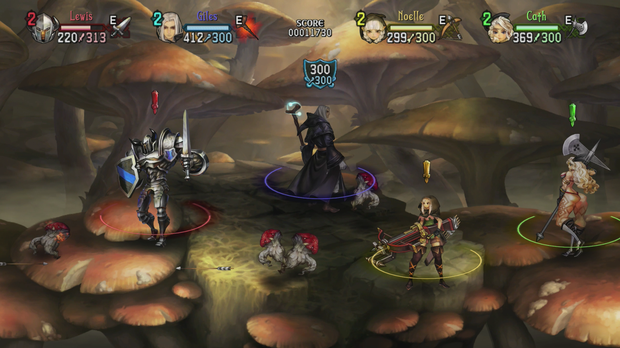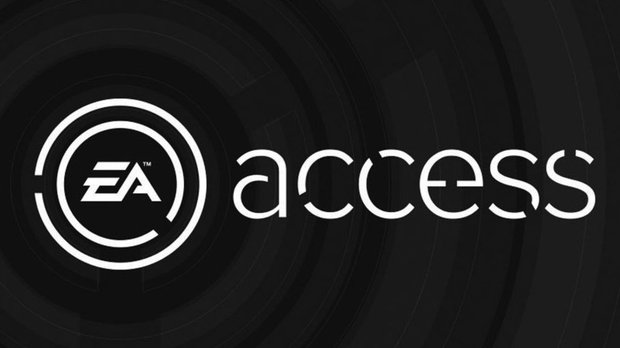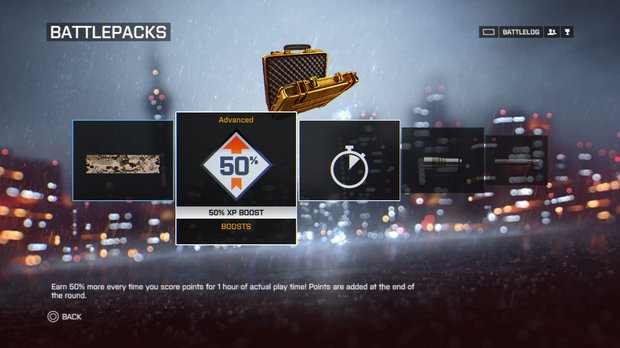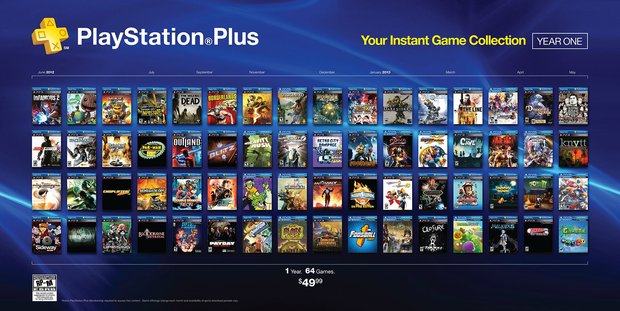In perspective: Why subscription services could be the future
EA announced earlier this month that it was going to launch a subscription service of its very own: EA Access. Anyone who buys in for $5 a month gets a selection of old EA games, temporary access to new ones, and discounts from its catalog. At the moment, EA Access is a great value if you want to pay $5 to play Battlefield 4, Madden NFL 25, FIFA 14, and Peggle 2 for a month and then move on with your life. It doesn't (yet) measure up to established subscriptions like PlayStation Plus or Xbox Live Gold, which have the native appeal of console-bound services and libraries. But taken from a bit of a distance, Access gives EA--and any publishers that follow in its footsteps--the potential to do a lot of cool stuff with minimal exploitation.
So, will other big-name companies--Ubisoft, Activision, etc.--pull a similar move? That really depends on how Access pans out. If done right, subscription services can be great tools for discovering new games, building publisher loyalty, and, most importantly, offering great value to you, the customer. I think we'll see a lot more of these types of services become available in the future--here's why.
Discovery
The gaming industry has a consuming fascination with new stuff. Everything most major companies like EA or Activision do is aimed at making new products--only problem (OK, one of many problems) being that all those new games turn into old games before you can say, "Wait, did I buy the Season Pass or not?" Companies call the released games they’re not currently pumping marketing dollars into "catalog titles". Aside from the Victoria's Secret mailer connotations, it's not a very sexy designation. But with "The Vault", EA can make its old games exciting again.

How so? Just look at PlayStation Plus. A few weeks ago, I downloaded Dragon's Crown "free" from the service. I had no plans to buy the game at launch, and no plans to buy it a year later. But when Sony offered it to me at no additional cost to my $50 subscription, I got excited. "Yeah, now I can go brawling with that chunky dwarf and that axe-wielding pair of thighs!"
Neither Sony nor Atlus lose out on any income here--as I said, I wasn't going to buy Dragon's Crown. Period. But offering different games each month to subscribers is just one more thing convincing me to renew my Plus subscription before it expires next week, one more little bit of value that makes me think fondly of the service and, by extension, the company.
It's tougher to say for Xbox Live Gold, since Games with Gold is a relatively recent addition to the service. Microsoft required a paid subscription for online multiplayer all the way back on the original Xbox, and the Xbox 360 brought subscribers with gated access to entertainment apps like Netflix. But Microsoft saw the free-games-with-subscription angle as a big enough deal to rework its Games with Gold model for Xbox One while letting the unsubscribed masses get their Netflix on. EA clearly isn't afraid of giving some beloved old games away, as demonstrated by its intermittent "On the House" offers on Origin. EA Access could standardize that fun but easy-to-miss promotion.
Loyalty
Aside from free libraries, EA Access, PS Plus, and Xbox Live Gold offer their subscribers discounts on new games. It sounds like a great deal for folks who planned to spend money on their respective products anyway, but it's an even better deal for the companies that offer them.
Seeing that bigger, more colorful discount figure next to the regular cost for the non-subscribing plebes makes you feel special, and it's also a reminder that you already paid for the deal. You'd be losing money not to capitalize on it, right? And it's no coincidence that these subscription services are driving people to digital content, where manufacturing, shipping, and retail operations don't take a cut of the sales (but games still cost $60). Just one of many reasons EA's digital revenue has started regularly outpacing its packaged goods.
Weekly digests, tales from the communities you love, and more

Of course, it's not all about the cash, at least not directly. Setting up a subscription service like EA Access gets you interacting directly with EA. Suddenly the company is not just an annoying splash screen or log-in window every time you play Battlefield. Now it's your content provider. Not GameStop, Best Buy, or Amazon, and not even Microsoft--EA is giving players a reason to take interest in the company as a brand. And it's not even using any insipid hashtags to do it.
That's particularly useful for a company that doesn't have much cross-franchise loyalty. Ubisoft CEO Yves Guillemot agrees, saying in an interview with Game Informer that bespoke subscription services could make make "the publisher more important in the player’s mind", while encouraging players to explore all of a publisher's offerings instead of just what brought them there in the first place.
Diversity
So these services have the potential to bring new players in, or introduce old players to fun new stuff they may not have paid for outright. But what can subscription services give all these new people to keep them around other than a bunch of old games?
If you read as many press releases as I do (good heavens why would you do that) you're probably familiar with the term "games-as-a-service." It means thinking of games as a continually developed product that grows and changes over time instead of being a single discrete package--think League of Legends and World of Warcraft. And unlike a discrete package, if publishers can keep you playing, they can keep you paying (usually through microtransactions and the like).

Developers who put together a successful game in this service model receive a rare blessing in the games industry, steady revenue, in return for their steady work. But that also means they need to focus on a single product--er, service, sorry--instead of trying new things. It's kind of weird that they call it Riot Games, right?
What about the kind of person who likes to sit down with one game, play it all the way through, and move on to the next one? Subscription services don't have to leave them out in the cold. For companies with tons of studios like EA, Ubisoft, Sony, and Microsoft, the service model can deliver lots of discrete games to a hard drive just as easily as it can keep a single game going indefinitely.
As long as customers get enough games they enjoy out of the subscription, they don't have to like everything. You don't watch everything on Netflix, right? But you still appreciate that it's all there, whenever you want it, included in one simple subscription.
That opens up room for experimentation. Known properties will draw people into the service, but smaller projects have an opportunity to skitch in on their oversized trailer hitches. If the little games are a hit, they can start a new franchise. If they flop, the company still gets the subscription money and the investors never need to hear about it. EA Access won't turn EA into some kind of supersized intercontinental Double Fine, but it's a start.
Offering "good value"
Yeah, I'm being a bit optimistic. Instead of using EA Access to circulate experimental games and dole out scads of free-ish catalog titles, the company could just trickle in a few hits, offer minor discounts and early access periods, and cash in on the subscription fees until people decide they're not getting their money's worth. Ubisoft could see the experiment crash and burn and run screaming in the other direction.

But I don't think EA or (most of) its potential imitators will. This is an angle that EA has been considering for years, and solid competition from PS Plus and Xbox Live should keep it honest.
That's assuming Sony lets EA compete, of course--the company apparently shot down EA's offer to bring EA Access to PlayStation systems, observing that it doesn't offer a "good value to the PlayStation gamer". SCE Europe boss Jim Ryan elaborated, saying Sony isn't "quite comfortable with how it sits within the whole ecosystem of our digital offering, including PlayStation Plus".
I'm not too sure where such valuable offerings as this $5 LA Clippers dynamic theme, $4 avatar eight-pack (which features such profound icons as "I $2 Call of Duty: Ghosts Blunt Force Pack that paints pot leaves on your assault rifle sit in the ecosystem either, but I'm not an executive.
Either way, as long as PS Plus and Games with Gold offer their subscribers decent value, EA Access will have to follow suit to survive. The company has a lot to prove about an interesting concept, and it has to prove it to an audience expecting to be disappointed. Grumble as you might about EA, the company has a lot of talented people. If they respect Access's potential, this could be EA's most promising move in years--and if it succeeds, we'll see more programs like it in the very near future.
I got a BA in journalism from Central Michigan University - though the best education I received there was from CM Life, its student-run newspaper. Long before that, I started pursuing my degree in video games by bugging my older brother to let me play Zelda on the Super Nintendo. I've previously been a news intern for GameSpot, a news writer for CVG, and now I'm a staff writer here at GamesRadar.



